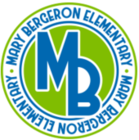A Variety of Approaches. A Shared Purpose.
At Mary Bergeron Elementary, our commitment to core academics is unwavering. Literacy, numeracy, and critical thinking form the backbone of student learning, and we approach these subjects with care, purpose, and creativity. We believe in meeting students where they are — not just based on their grade level, but on their individual strengths, needs, and readiness.
Our teaching teams use a variety of research-based strategies and approaches to ensure every student experiences meaningful growth. Whether through small-group instruction, guided reading, hands-on math explorations, or cross-curricular inquiry projects, we personalize learning to help every child move forward with confidence and curiosity.
But strong academics don’t happen in isolation.
We understand that academic success is deeply connected to social, emotional, and physical well-being. That’s why our approach is holistic — we nurture the whole child while maintaining high expectations for achievement. Our classrooms are safe, caring, and inclusive spaces where students feel seen, supported, and challenged.
At MBE, academic excellence isn’t just a goal — it’s a journey we take together. With a strong process, responsive supports, and a belief in every child’s potential, we build the foundation for life-long learning — one student, one story at a time.
Evidence-Based Strategies That Make a Difference
At Mary Bergeron Elementary, one size never fits all. That’s why we use a range of flexible, responsive strategies to support each learner’s growth — academically, emotionally, and beyond. Our teaching practices are guided by research — especially the work of education researcher John Hattie, who studied millions of students to discover what strategies make the biggest impact. Here are some of the most effective ones we use at MBE:
-
Clear Learning Goals
Students learn best when they know exactly what they’re learning and why it matters. Teachers share goals in student-friendly language and revisit them often so everyone stays focused.
-
Feedback That Moves Learning Forward
We give timely, specific feedback — not just "good job," but clear suggestions for what to do next. This helps students grow and take ownership of their learning.
-
Teacher-Student Relationships
Strong, trusting relationships between students and teachers are essential. When kids feel safe, known, and supported, they’re more willing to take risks and push themselves.
-
Collaborative Learning (Cooperative Tasks)
Working with peers helps students explain their thinking, hear different perspectives, and build teamwork skills — all while deepening their understanding.
-
Formative Assessment
Teachers constantly check in with students — not just at the end of a unit, but throughout the learning process — to adjust teaching and offer support right when it's needed.
-
Direct Instruction (When It’s Needed)
Sometimes, the best way to teach something is just to explain it clearly. Our teachers use direct instruction when introducing new concepts or skills, then move into practice and exploration.
-
Scaffolding and Guided Practice
We support students step by step. At first, teachers model and guide. Then, as students build confidence and skill, they take on more responsibility.
-
Classroom Discussion
We build in time for meaningful conversations — where students explain their thinking, ask questions, and learn from each other in real-time.
-
Metacognition (Thinking About Thinking)
We teach students to reflect on how they learn — setting goals, choosing strategies, and evaluating their own progress. This helps build independent, confident learners.




